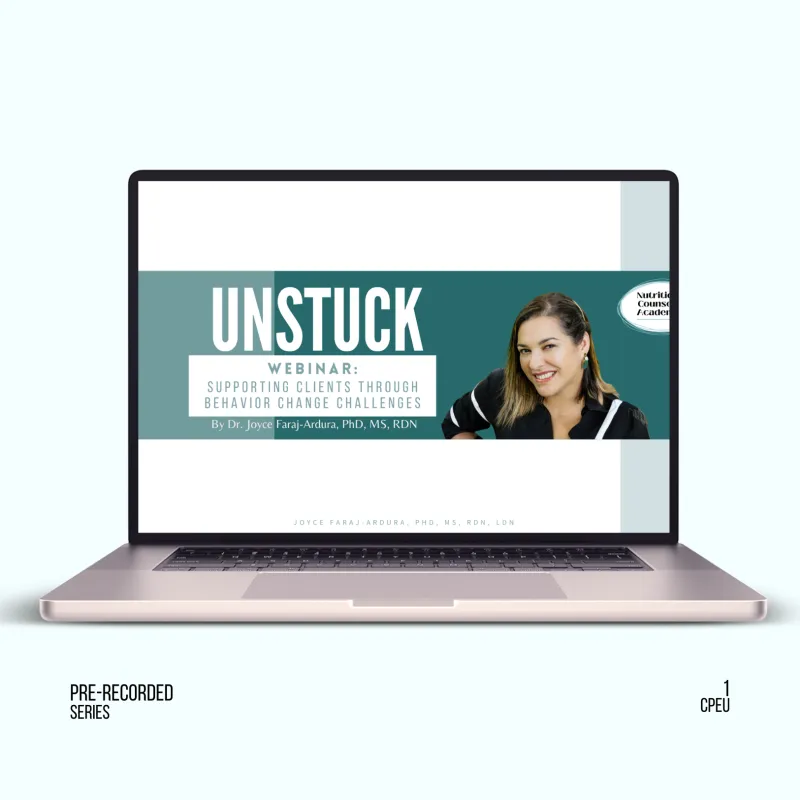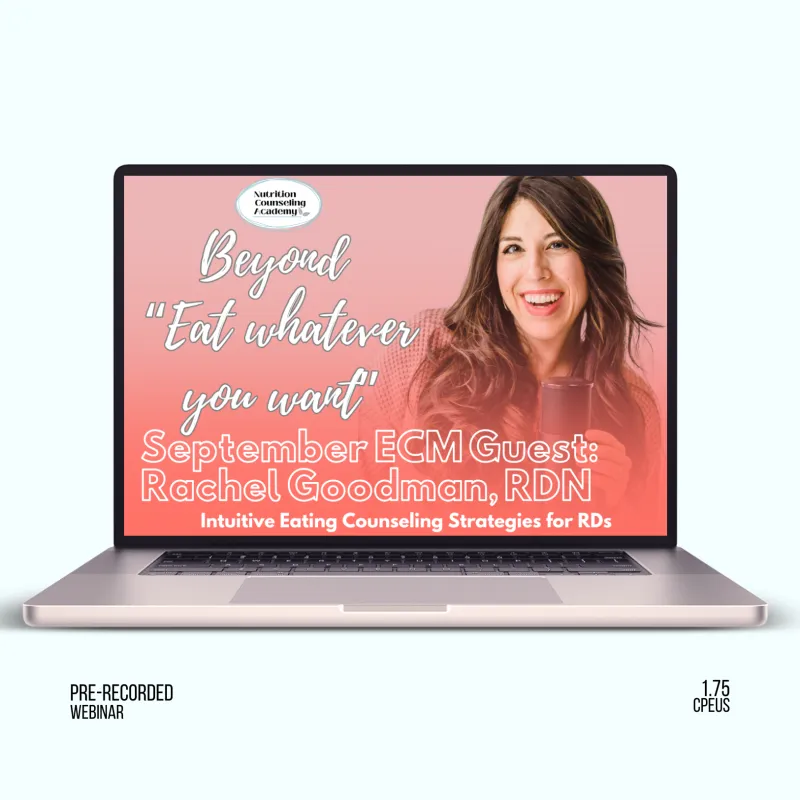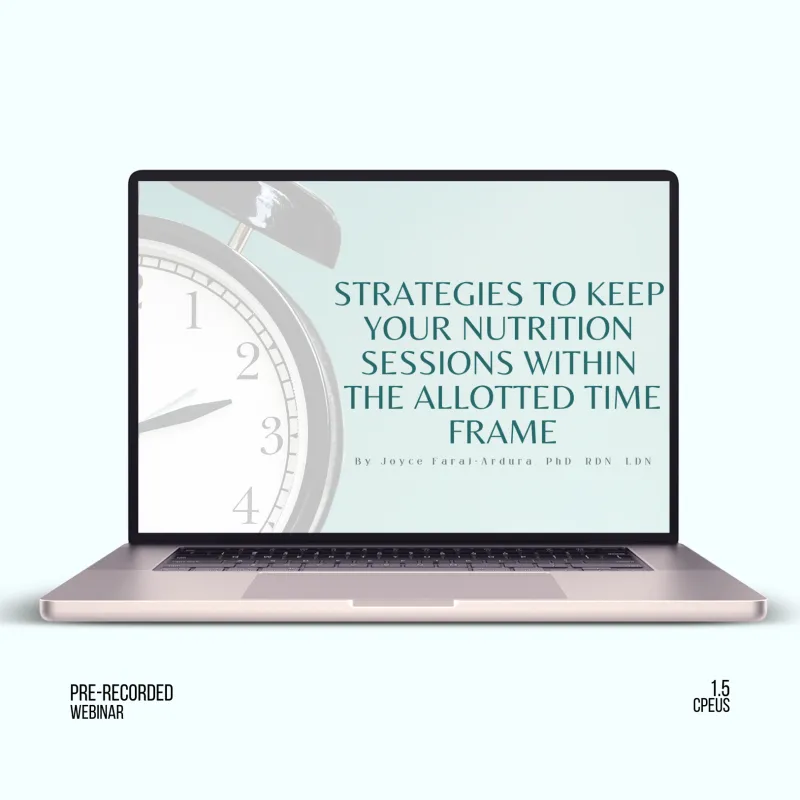From Information to Transformation
Become the behavior change coach your clients need - confident, MI-driven, and person-centered. Because nutrition is a science, but eating is a behavior.
We help registered dietitians, heath practitioners and coaches who want to level up their motivational interviewing and real world coaching skills - so sessions become easier and transformational.

✨Stay Tuned for Our 12 Days of Celebration
Starting December 12th✨
Looking for the Perfect Planner for 2026?
2026 planner based on behavior change psychology to help you get organized so you can accomplish the tasks, work on the habits, or
complete the programs you've been meaning to do successfully!
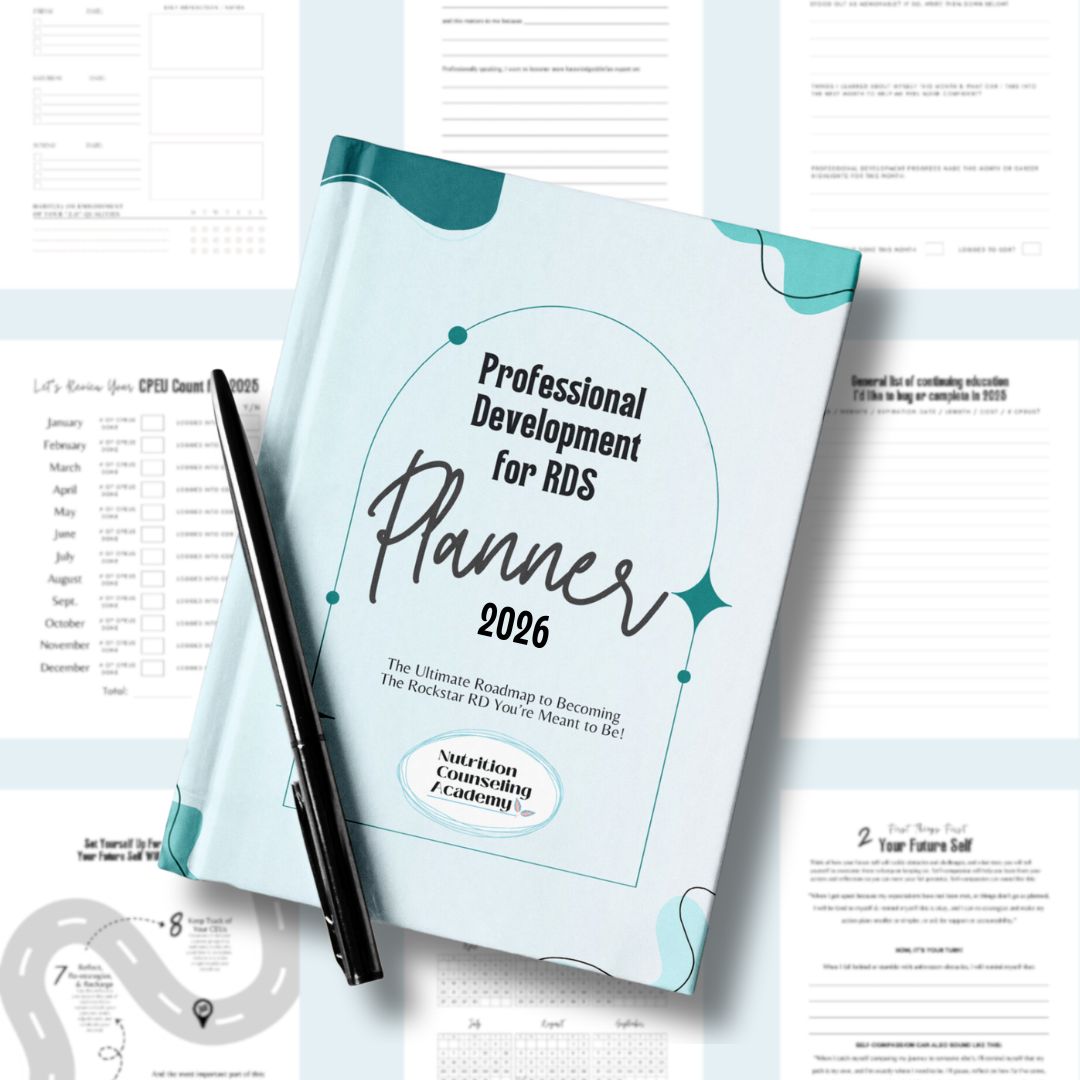
The Problems We Solve:
You were trained to find the problems & educate - not to guide behavior change in real life.
Sessions often slip into info-dumping and leave clients overwhelmed.
Your training has not included a safe and accessible place to practice & get feedback to build that confidence. So you rely on what you know: education & handouts.
The result: brilliant knowledge that does not translate into client action.
Our programs are designed with you in mind. Everything we create aims to provide you with the knowledge & practical application so you can apply person-centered evidence-based coaching strategies into your sessions right away. We offer different levels of support through our varied programming. Find our which is best for you by taking the quiz below (Black Friday Sale related through 11/30):

The Nutrition Counseling Academy's Approach:
Connection-Driven Change ModelTM
Every program, workshop, and training we offer maps to these three pillars that turn your nutrition counseling sessions into consistent, client-led change.
#1. Applied Behavior Psychology
Turn evidence into easy, ethical tools you can use tomorrow—habit loops, values work, decisional balance, and MI micro-skills (OARS) that actually land.
#2. Connection-First Coaching
From lecturing to collaborating. Learn client-led conversations, effective session structures, question banks, and scripts that explore motivation, elevate autonomy, dignity, and compassion.
#3. Practice - Feedback - Confidence Loop
Skills stick through reps. Build confidence fast with self-reflection, live role-plays, coaching labs, case consults, and personalized feedback mapped to an MI-aligned rubric in our hybrid program (Coach with Confidence).
Top Choice: The Empowering Change Membership
This is the resource you didn't know you needed. Strategy + Coaching + CEUs all in one accessible place for you to access anytime!


"This program is allowing me to be a better nutrition counselor vs. educator. Join this program if you want to further your counseling skills."
— Carol, RD

The Empowering Change Membership program has helped me improve my confidence in my nutrition counseling skills. Having access to monthly CDR-approved education and training webinars has made it much easier to meet my CEU requirements. I appreciate that the webinars are self-paced and that I have lifetime access to the recordings, allowing me to revisit topics whenever I need a refresher. Most importantly, it has provided access to RD mentors from diverse backgrounds and different levels of experience. This has been the most crucial part of the membership, and the area where I've experienced the most growth. This is an incredible opportunity and resource, particularly for newer dietitians who require additional support as they begin their careers. I highly recommend the Empowering Change Membership program and can't imagine going without it!
— Maria, RD

“I stopped guessing about ‘what to say’ and gained exact phrasing that works. The programs and webinar have really expanded my knowledge while the handouts and scripts have made my job easier. I no longer struggle with how to structure my sessions"
- Katie, RD
Signature Program: Coach with Confidence Framework
The Knowledge + Practice + Feedback + Support + Resources to accelerate your coaching skills & sky-rocket your confidence all in one program.
We start January 8th, 2026.
There are two options to enroll in the
Coach with Confidence Program:
New students enroll here:
Those who have joined the Elevated Nutrition Counseling Blueprint in the past:
Check out our Programs, Bundles, & EmpoweRD Series
These are fully self-paced options that provide CEUs and focus on specific areas of nutrition counseling & coaching.
Click on "learn more" to explore each of these offerings.

Learn the key strategies to help your clients going through perimenopause. You'll gain insights on nutritional requirements, emotional eating, body image, behavior change and so much more!

The only Certificate of Training program approved by CDR for 15 CEUs that cover everything you need to know about GLP-1s and how to effectively support clients on incretin therapy.

This is where you'll gain the practical strategies to advance your coaching skills to include mindset coaching, values-based conversations, what to do when clients are stuck and supporting neurodivergent clients.
Self-Paced Courses & Bundles

For Teams, Private Practices & Organizations
We deliver public speaking, workshops, and consulting on Motivational Interviewing, behavior change psychology, and nutrition counseling & coaching skills as well as group or 1:1 supervision. Fill out the contact form below and we will reach out to you within 48 hours.
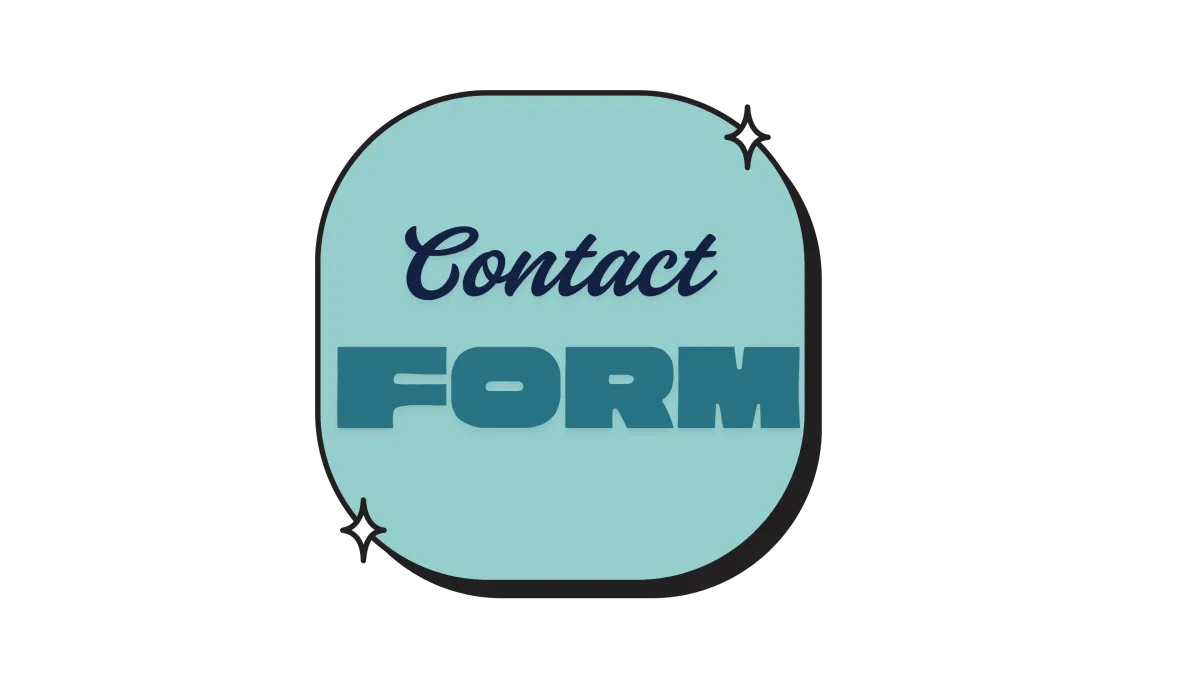
Watch the Free Training: "When Clients Expect You To Do All The Work"
Short, tactical lesson showing exactly how to reframe sessions and use two MI micro‑skills that prompt client ownership within one visit — free and immediate.
This free training is a practical 20‑minute lesson that demonstrates two MI interventions you can try in your next session. It's the one thing clinicians told us they wished they'd learned earlier: how to create productive resistance and move clients to self‑directed goals without feeling manipulative.
One recorded lesson you can watch in 20 minutes
Downloadable script snippets and reflection prompts


Nutrition Counseling Academy
[email protected]
NutritionCounselingAcademy.com
Copyright 2025. All rights reserved / Privacy Policy / Terms and Conditions


